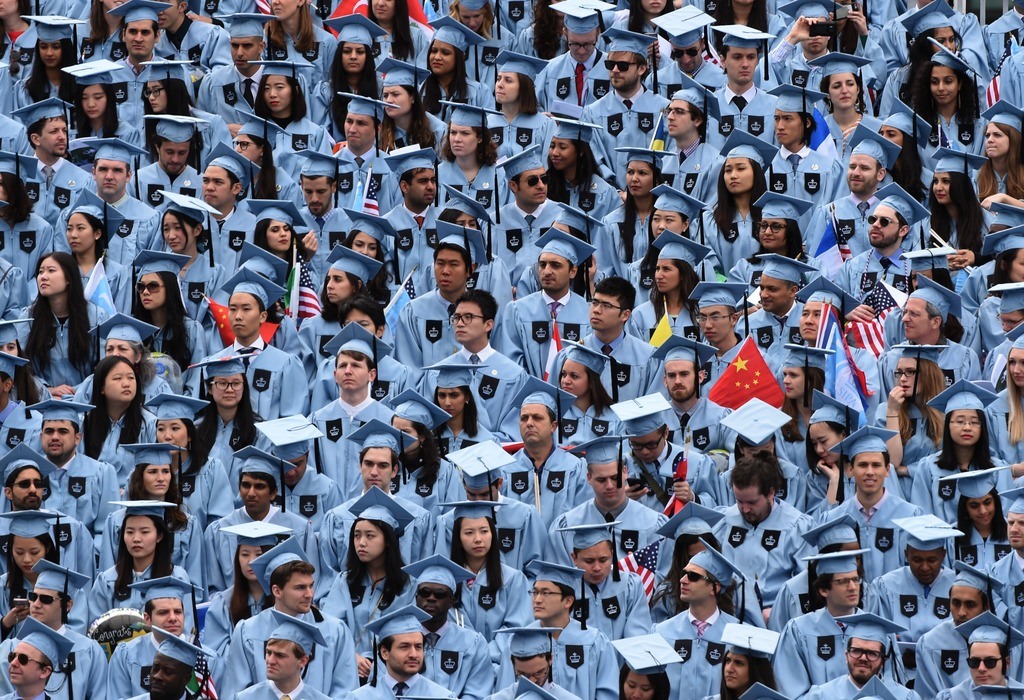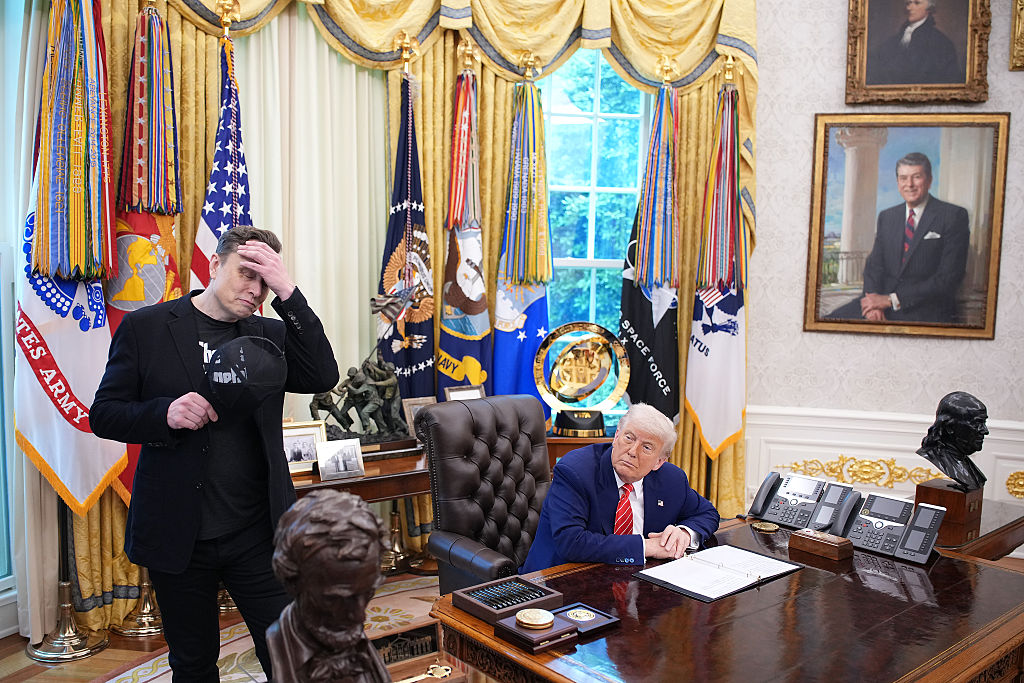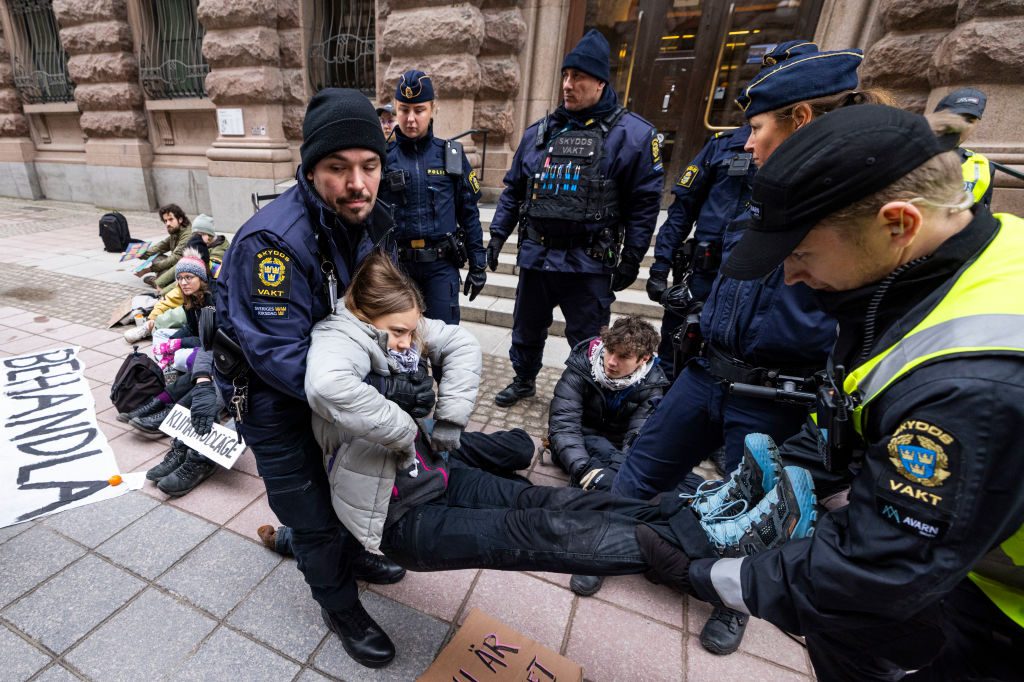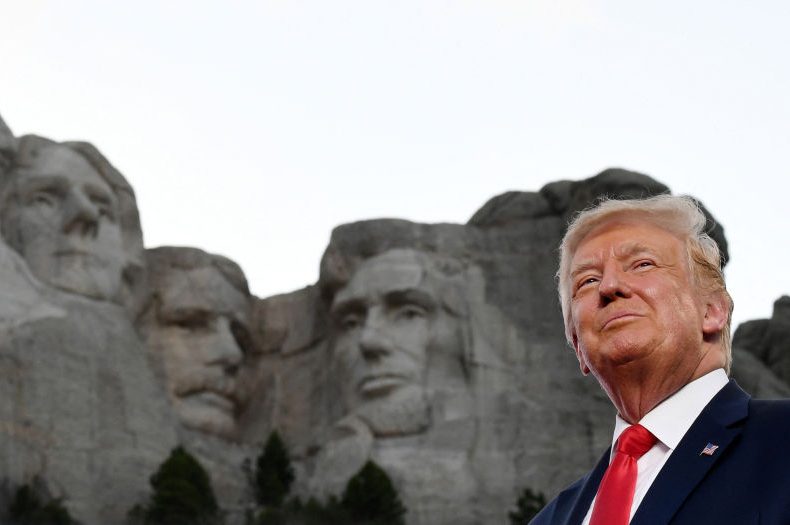In the Washington Post, Megan McArdle recently argued that “bias against conservatives works just like any other prejudice.” Her basic argument was that the left tends to dominate most institutions of social capital in the United States, leaving conservatives not just feeling like a disenfranchised minority, but actually being marginalised in a very real sense from mainstream society.
It is no secret that the left dominates mainstream media outlets and institutions of higher learning. In the academy, conservative and religious scholars seem unfairly disadvantaged at virtually every level of participation: faculty discriminate against conservatives in graduate admissions, in decisions about hiring and promotion (even when conservative scholars come from better schools and have superior publication record), and in peer-review for publications. Curricula consistently exclude or denigrate conservative and religious views. Students dock professors whose political ideology strays from their own during course evaluations. Conservative guest speakers are routinely disinvited from campus under pressure of student mobs – or find themselves unable to actually speak due to protests and disruptions. On and on.
It is perhaps no surprise, then, that conservatives are the most underrepresented major demographic group within social research fields:
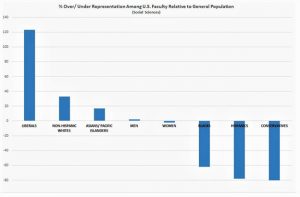
However, many on the left fail to see a problem here. One popular rebuttal to McArdle, by Hamilton Nolan, asserted that unlike race, gender or sexuality, “ideology is a choice” – and it is not anything like racism to treat people differentially on the basis of their choices.
Critically, this framing implies that race, gender or sexuality are intrinsic (and therefore, presumably, static). But in fact, as every progressive should know, people’s gender and sexual identities often do evolve over the course of their lives. Indeed, even racial and ethnic identities shift — for instance, in response to legal classifications, after getting back a DNA test or unearthing historical records suggesting a familial heritage one was not aware of, or as a result of marriage, the communities one lives in, socio-political current events, on and on.
The real question is: are political commitments akin to racial, gender or sexual identities? Or are they more like decisions about what to wear in the morning?
Nolan asserts the ‘fact’ that conservativism is a choice in the latter sense, providing no empirical evidence to back it up. Indeed, neither essay is informed (nor makes any pretense towards being informed) by social research. As a former philosopher and current sociologist, it is my experience that abstract arguments like these tend not to ‘get’ anywhere. A better path might be to work through the available evidence in the context of a specific example.
Looking at U.S. universities, for instance, conservativism does seem to function much like an ethnicity. In fact, policies and practices designed to exclude the right seem to have a disproportionate harmful effect on ‘real’ racial and ethnic minority groups as well.
Functional ethnicities
Do people really ‘choose’ to be conservative? Could a committed progressive – someone who deeply believed in the core tenets of the movement — just decide one day to be a conservative, and feel these commitments just as strongly (or vice versa)?
A similar point holds with regards to religion: could a deeply convinced atheist just ‘choose’ to be a devout Sufi mystic or a fundamentalist Hindu? Not just in terms of practice, but a sincere believer?
Most research on psychology, cognition or culture suggests that fundamental commitments simply don’t function that way. Instead, certain biological and otherwise intrinsic affinities are shaped through many of the same social forces through which race, gender or sexuality are constructed.
In fact, for many, religious or socio-political commitments are actually more central to their identity than their gender, sexuality, or race. Fundamental commitments typically help shape understandings of these subordinate demographic categories and their social significance. In the process, they inform what people value, what they aspire to, and how they act or interact ‘in the world.’
Foundational commitments often function much like an ethnicities (which is why, for instance, Islamophobia can be considered a form of racism, despite the fact that Islam is not a ‘race’: in most Western countries, one’s Muslim identity would essentially supervene upon one’s actual racial or ethnic background in shaping perceptions and interactions). As with many ‘actual’ ethnic minorities, members of ‘functional ethnic groups’ often end up concentrated into geographic clusters and patterns of life that persist across generations.
In the U.S., the conservative-progressive spectrum trends strongly along the lines of geography and class. It would therefore be expected that institutions which preclude conservatives would also tend to have severe underrepresentation among, say, working-class and rural Americans (who are more likely to identify as conservative than urban or wealthier Americans). This is the case in U.S. institutions of higher learning: as universities have grown increasingly politically homogenous (towards the left), participation among rural and working-class Americans has plummeted.
Economic factors play a key role in driving this effect, but so does the perception among many rural and working class families that college is not ‘for them’ – that they don’t ‘belong’ there. This discourages many who do have the financial means, or the grades to be competitive for scholarships and financial aid, to not even apply (or if they do attend, to struggle with ‘imposter syndrome’ – to the point where many end up failing or dropping out. Even for graduates from these groups, the idea of pursuing an academic job, especially in progressive-dominated social research fields, typically seems beyond the pale).
In short: measures that preclude conservatives from university spaces will tend to marginalise rural and working class people more broadly – because in many important respects, progressives and conservatives are not just the same kinds of citizens who merely happen to vote differently, but are increasingly and fundamentally different types of people.
Interaction effects: Race and functional ethnicity
Ethnicities can encompass a wide array of races – for instance, there are Hispanic whites, Hispanic blacks, and everything in between. Functional ethnicities are no different: Muslims in the U.S., for instance, are extremely diverse.
Similarly, ‘rural’ and ‘working class’ are not mere synonyms for ‘white’ (let alone ‘male’). In fact, policies and practices which are harmful to rural working class whites are likely to have an especially harmful effect on rural or working class minorities. Intersectionality 101: if it is disadvantageous to be rural, and disadvantageous to be Hispanic, then a rural Hispanic person is likely to be much worse off (and a rural Hispanic woman, even more so).
‘Conservative’ is not a synonym for ‘white’ either.
To the extent that people who hold conservative or religious views feel unwelcome in the academy (and especially in social research fields) – it will not just be whites who are excluded, but also a number of blacks and Hispanics (not to mention women):
Although blacks overwhelmingly vote Democrat, they are actually much more heterogeneous in their ideological leanings than their voting patterns would suggest – especially on issues related to gender, sexuality or even immigration. Hispanics also tend to be more conservative than whites on a range of social issues. Blacks and Hispanics tend to be more religious than whites too.
Given that blacks and Hispanics are, on average, more religious and more socially conservative than whites – policies and practices that alienate socially conservative or religious perspectives will disproportionately affect these minority groups rather than whites (that is, students who are Hispanic or black would be more likely to be impacted by these exclusionary measures in virtue of being more likely to be religious or socially conservative).
Therefore, it may not be a coincidence that the representation rates for blacks, Hispanics and conservatives are so similar, why representation of black and Hispanic students has gone down in the very elite and east coast universities where domination by the left is most pronounced. In principle, these hyper-liberal spaces should be the least hostile spaces for blacks. In reality, the exclusion of conservatives and believers from the academy actually seems to run contrary to the goal of bringing in more people from historically marginalised and underrepresented backgrounds, or elevating their voices.
Indeed, it is not just religious or socially conservative minorities who end up jeopardised by the academy’s institutional biases against the right: Progressives who hail from historically underrepresented or marginalised groups tend to bear the brunt of the blowback from Republican voters against ‘partisan’ universities. In fact, research by critical race scholars, feminists, or queer theorists is perhaps most likely to be devalued and defunded when universities find themselves under assault by conservatives who feel as though they have no place in institutions of higher learning.
This is why I implore progressives and scholars of color to support efforts at making campuses more inclusive towards conservative and religious perspectives: achieving levels of racial diversity in institutions of higher learning that even remotely approximate parity with the broader population would likely require substantial increases in political diversity as well. Race and ideology are not as separable as they may appear at first blush.
Musa al-Gharbi is the Paul F. Lazarsfeld Fellow in Sociology at Columbia University and a research associate at Heterodox Academy.



